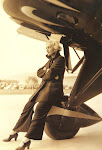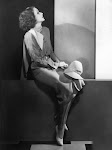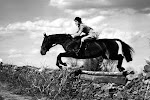During the 1940s, upper-crust bearing accents and intonations were the rage among American films!
American actors and actresses, politicians and socialites alike, engaged in what some described as rapid fire, laser sharp, egotistical, socialite speak. An example of this type of vocalizing to consider is within the film "The Philadelphia Story", a product of the Golden Era of Hollywood and starring the inimitable Katherine Hepburn. Through the words and manner spoken, here was a film, among many, highly and extremely conscious (and unashamedly so) of conveying stratified social classes to Americans!
What readily comes to mind in describing the words flowing forth from this and other motion pictures of the era are endless and the
mother lode in descriptive verse! Some phrases and describing adjectives could include: Unabashedly, devastatingly witty and snobbish, the "stuff" and posh from the pedigree of privileged blue bloods!
But then, we could collect adjectives for simply years in description couldn't we?
Upon closer observation, whilst listening to these remarkably skillful masters and elocutionists of film and life, one may find themselves wondering, then as now, if they're hearing any number of variations of English, Boston, Philadelphia or New York accent among noveau riche with a bit Katherine Hepburn brevity version in the mix. Whatever the case, you may find yourselves lapsing into a feeling you're a piercing observer or intruder among an enclave of artistic, wealthy and elite socialites and flowing words.
Yesterdays' public theatre-goer, Americans fascinated by "escapist film gems" and so long deprived by the War and the Great Depression, surely found the allure of opulence and manner of speech enthralling. Having a glimpse, through motion pictures, into the lives of the American over-privileged offered a temporary reprieve from the
reality of the everyday world of the era.
Author note:
Frankly, don't mean to be a bear of a bug, you know (eh, what?) but this over stylized, stinging wit and scalding mincing of words and candor,which thrilled most in the milieu of observers of movie goers during the 1940s, thrills and intrigues yet today!
Some may say history has the linguists of the era to name as progenitors of the 1940s style of speech made popular in motion pictures. Others say we may credit the collaboration and bally hoo of Hollywood and elocution coaches for the clear style of diction and affectation of speech represented in films and elsewhere througout the 1940s and still heard today.
Each and every time you utter a word, you give listeners clues of who you are and where you come from.
It is difficult to find the answer in the milieu of possibilities to the origin of the ephemeral "1940s speak". Yet as I leave you now, to enjoy a bonanza and plethora of 1940s dead-on movie portrayals, from the purely historical perspective (wink, wink), I proudly unabashedly proclaim (
speaking slowly, teeth together and round tones in pure affectation):
"It may be a "tad ovah the top deahs", nevertheless, the thawt that ah am evah so completely enthralled, to the point of neahly shaken (and devastatingly so dahling), I do not apologize for my extreme enjoy-ament of the "kind" speech occassioned of the 1940s".
Le Brigand
Contributing

































